The 9 Most Essential Baking Tools
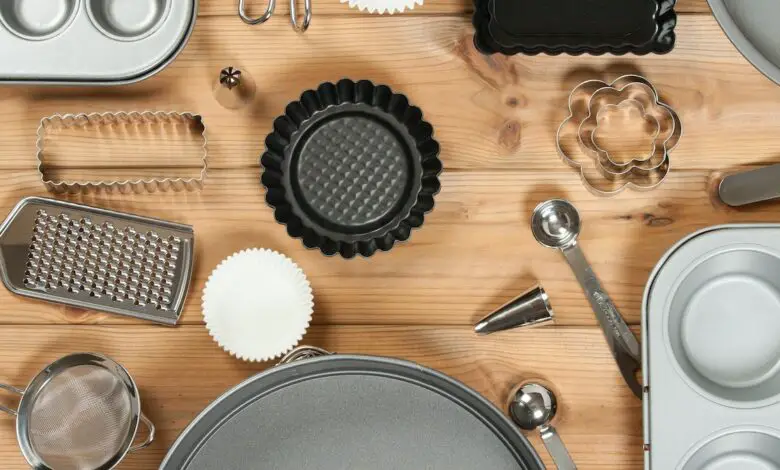
When people talk about baking, it’s often lumped into the same category as ‘cooking.’ But the two actions are actually quite different.
You’ll hear a lot of professional chefs swearing they can’t bake and vice versa.
Sometimes, it’s a matter of not being comfortable with the skills involved. Other times, amateur cooking or baking skills are nothing more than a lack of equipment.
When you start baking, you’ll learn that the tools you need aren’t the same as your cooking utensils. The options are endless, but not all of them are necessary.
As you become an expert baker, be sure to add these nine essential baking tools to your kitchen’s inventory!
1. Two Types of Measuring Cups
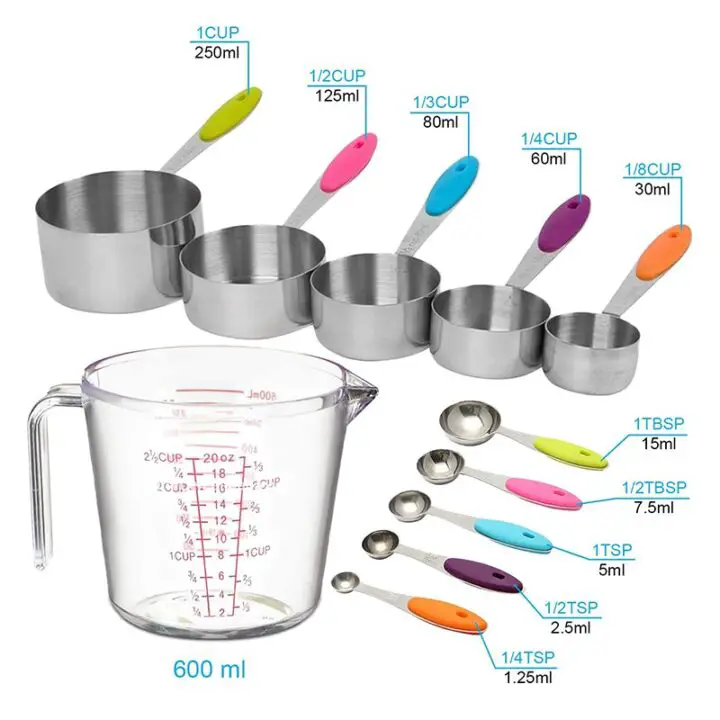
Did you know that you’re supposed to be using a different measuring cup for liquids than for solids?
If not, it’s okay. Most of us don’t realize this, but it makes a big impact on the results.
Your tools should consist of a complete set of wet and dry measuring cups, as well as a tablespoon/teaspoon set.
Liquid measuring containers usually come in 2-cup or 4-cup sizes. Angled surfaces like these make it easier to see how much you’re pouring.
2. Rubber and Metal Spatulas
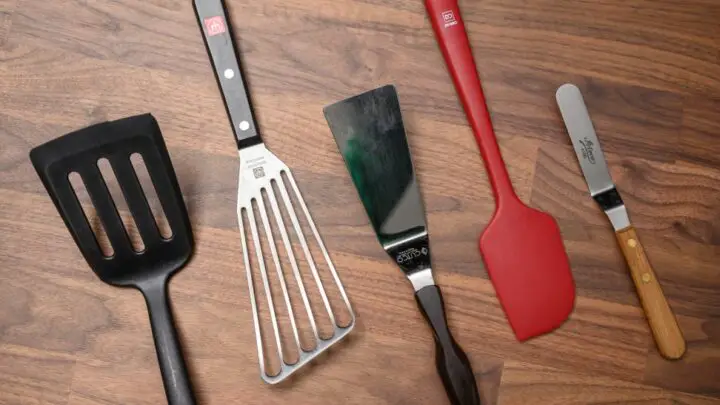
You might use your metal spatula more often when you’re cooking, but professional bakers swear by their rubber tools.
Rubber scrapers are necessary to make sure you get all the dough or batter from the bowl. They’ll pull out the last of the butter, the remnants of jam, and anything else you don’t want to go to waste.
Rubber spatulas are also the key tool when you’re folding ingredients together, which is common in baking.
But a metal spatula is also essential to pull those toasty hot cookies out of the oven or cut a piece of cake.
3. A Wooden Spoon
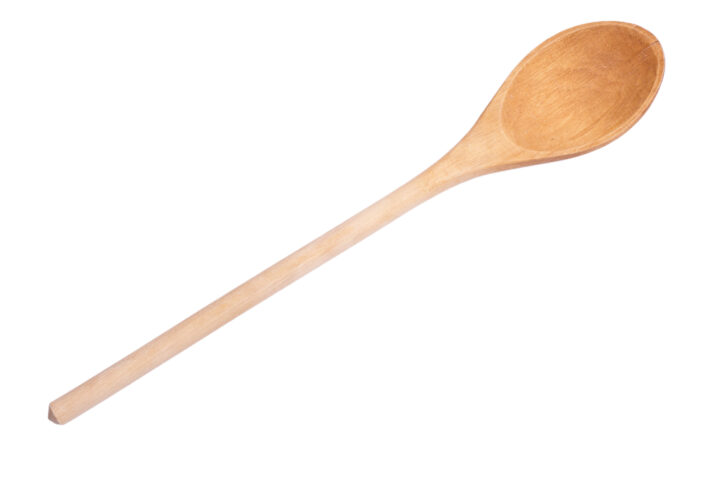
A wooden spoon is more durable than the plastic alternatives, making it the preferred stirring tool for heavy dough. It’s also helpful when you need to scrape stuck objects off your pan or turn and stir at high temperatures.
At some point, if you don’t use a wooden spoon, you’re going to deal with the handle breaking as you stir. You can start with a basic tool, but eventually, you’ll fall in love with the ease of using wood utensils, and you’ll want a whole set.
4. Cheesecloth
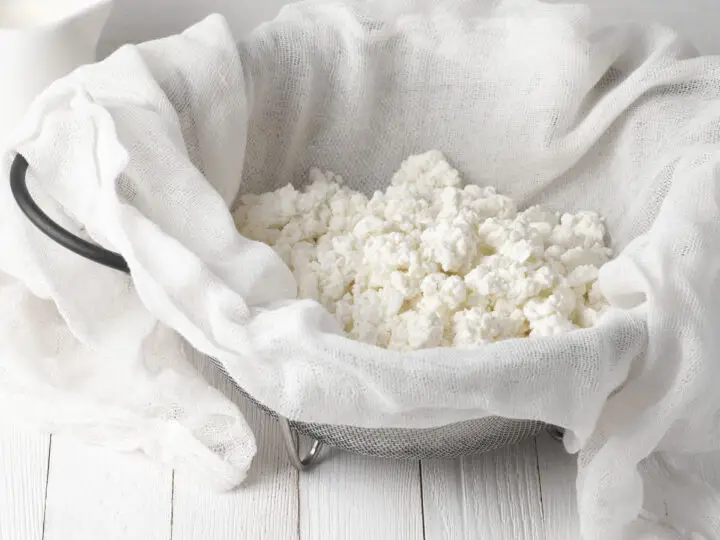
You might already have a colander or strainer in your kitchen, but when you’re baking, you need a cheesecloth. It’s a piece of fabric that acts as a sieve, holding the solids and letting tiny particles through the cloth.
Cheesecloths are primarily used to make cheese, yes. However, they’re also must-haves if you’re making homemade infused oils or straining fruit for drinks and pies.
Baking with cannabis, for instance, means you’re going to have a lot of expensive ingredients you want to make the most of. A cheesecloth catches the leftovers. Veriheal offers suggestions for how to use the rest of the leaves here.
5. Multiple Whisks in Different Sizes
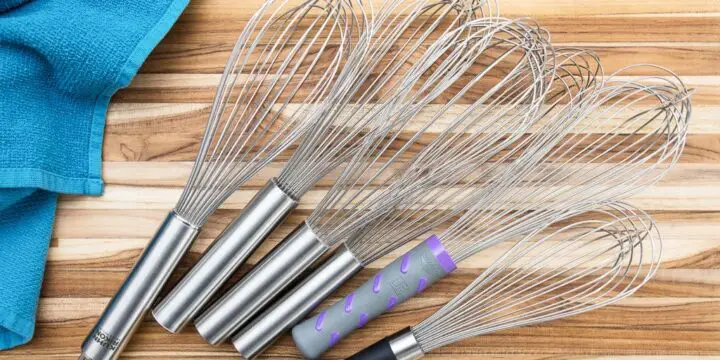
Whisks are the go-to tool to beat eggs, mix dry ingredients, and so much more. But one size does not fit all with this handy tool.
It’s helpful to have different sizes on hand to adjust with the bowl and the weight of what you’re whisking. Get a set with multiple sizes you can use when you’re blending, stirring, whisking, and beating.
Some people prefer rubber whisks, but the most commonly used are stainless steel varieties.
6. A Pastry Brush
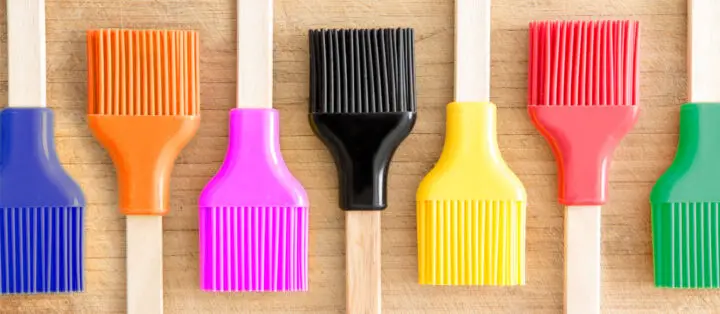
Pastry brushes have a wood or plastic handle that ends in bristles. If you barbecue a lot, you probably already have one of these tools in your kitchen. They’re used to add layers of egg wash and other ingredients when you need a gentle touch.
Natural bristles give you a more even coating of what you’re brushing and don’t typically leave streaks. But silicone bristles are durable, won’t come off in your food, and are dishwasher-safe.
When you’re baking, it’s helpful to have brushes with both short and long handles in case you need to lean into the oven.
7. Sharp Scissors and Knives
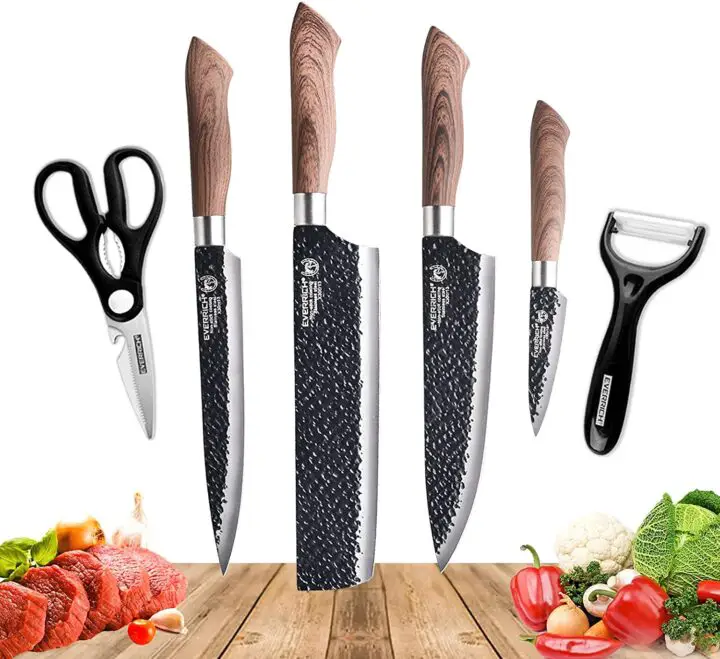
Kitchen scissors should be different from your household shears. For one thing, scissors designed for kitchen use are sharper. But another reason is that you don’t want to use something you’ve used to cut raw meat on anything else.
Sharp knives are important, too. There’s a huge difference you’ll notice when you’re cutting with a razor-sharp edge instead of a dull one.
If you don’t have any other high-quality blades, make sure you invest in a chef’s knife and a paring knife. Your baking and cooking job will be much easier!
8. A Rolling Pin
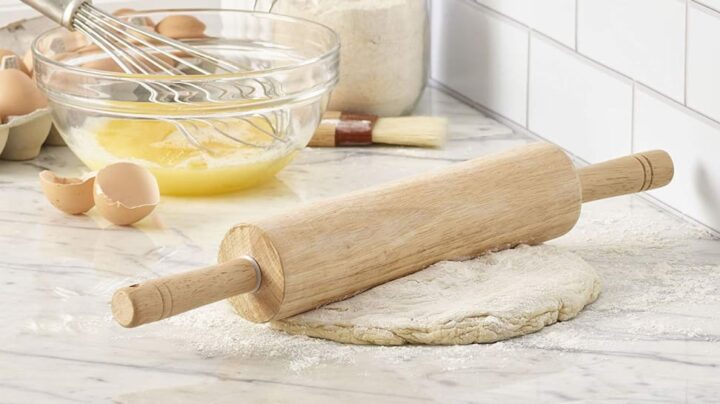
The more confident you get with your baking expertise, the more you’ll make your dough from scratch. Pie crusts, cookie batter, pastries, and other yummy treats taste better homemade!
Rolling pins are also helpful if you need to crush ingredients. Grab the Ritz crackers or chips that need to be pulverized and throw them in a plastic bag. Squeeze the air out and seal it tightly, then roll the pin back and forth over the bag. It’s simple (and a lot of fun, too).
9. Various Baking Pans
Pie pans, cake pans, casserole pans … there’s a pan for everything!
You’ll need one of them all eventually, but you can start with a rectangular cake pan, a round cake pan, and a pie plate. Those three basics should get you through most recipes.
Now that you’ve chosen the sizes, the next trick is to figure out what material you prefer to bake with. Bakeware can be purchased in aluminum, stainless steel, glass, silicone, and cast iron. Each of these types responds differently to high heat.
Thicker aluminum pans, for instance, will heat up faster than thinner gauges. Baked goods will cook faster in a thick pan than a thin one, so you’ll need to adjust your cooking time.
Use this guide to help you decide which type of pans you want and what to be aware of when you’re baking with them.
Conclusion
As with any hobby, you can go overboard trying to get ready to start your new adventure learning how to bake. But until you’re fully comfortable being hands deep in flour and eggs, stick with these nine essential tools for your baking needs.
